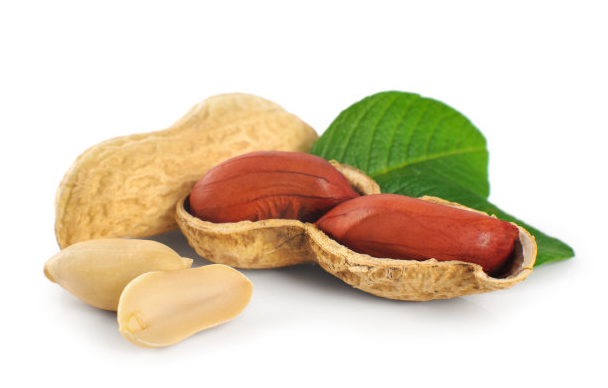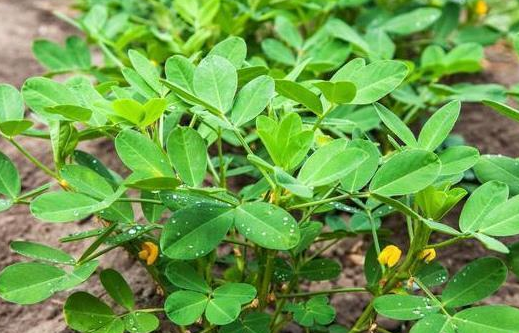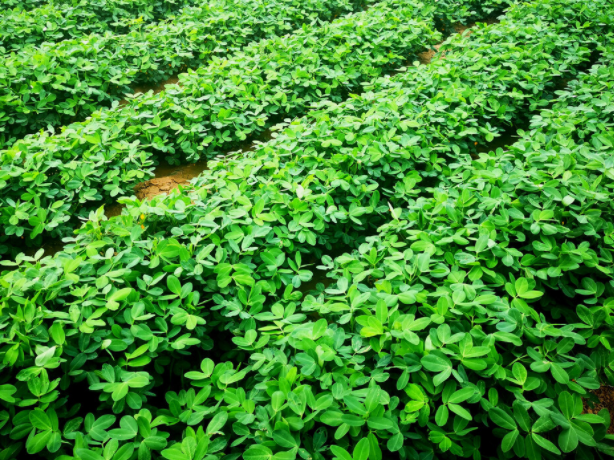The late growth period of peanuts refers to the period from the first full pod to the mature harvest, that is, the full fruit ripening period, which lasts about 45 to 55 days. During this period, no more new leaves were added, and the lower and middle leaves began to fall off. The focus of field management is to prevent early deciduous leaves, especially the upper leaves, to maintain a larger green leaf area and maintain a longer functional period, thereby increasing the number of effective results, increasing solidity, and increasing yield.

The main reasons for the early leaf fall of peanuts are: defertilization and premature aging, sandy soil is more serious; leaf spot disease, especially black spot disease and brown spot disease, once it occurs, it spreads rapidly, often causing a large number of leaves to fall off within a few days ; Premature and excessive spraying of plant growth regulators, especially more serious than Jiuhe Paclobutrazol and regulators containing this ingredient. The main measure to prevent early leaf fall is to prevent diseases and supplement fertilizer.

Strictly prevent leaf spot disease Peanut leaf spot disease is mainly black spot and brown spot, both of which are mainly harmful to leaves. Symptoms of peanuts start from the lower leaves, and then gradually spread to the upper leaves. In the early stage of the disease, small brown spots are produced, and they gradually develop into round or irregular-shaped lesions. The brown spot is larger with a yellow halo around the lesion, while the black spot is smaller, lighter in color than the brown spot, with neat edges and no obvious halo. In humid weather or long-term rainy weather, the diseased spots can combine with each other to form irregular large spots, and the leaves are scorched, which seriously affects photosynthesis. If it occurs on the petiole, stem or fruit needles, it will produce oval dark brown or brown spots at light, and the whole stem or fruit needles will become black and dead, which will greatly reduce the yield of peanuts. In the late stage of peanut growth, there are many kinds of leaf spot diseases that damage the leaves and cause early leaf deciduousness, and the main ones that are more harmful and difficult to control are brown spot disease and net spot disease. It can be sprayed in time at the beginning of the disease. The better medicines are: 80% mancozeb 800 times solution, 70% thiophanate methyl 800 times solution, Nongkang 120 water solution 200 times solution, 50% colloidal sulfur 200 times solution, 1:2: 200-fold Bordeaux liquid, etc. When spraying, pay attention to spray evenly and thoroughly to prevent leakage. Spray once every 8 to 10 days, and spray for 3 to 4 times, which can basically control the occurrence of the disease.

Foliar sprayed peanuts reached the late growth stage, the root system's ability to absorb nutrients from the soil and the nodule's ability to fix nitrogen began to weaken, while the leaves' ability to absorb nutrients increased. Foliar spraying to supplement nutrients has many advantages, such as fast absorption, rapid action, and high utilization rate. It is a better measure to prevent premature aging caused by premature leaf fall. For peanut fields with partial sandy soil, thin soil strength, insufficient base fertilizer, short plants, weak growth, yellowing of the leaves and defertilization of peanuts, foliar spraying can be carried out with 1% urea solution. It is not necessary to spray urea in fields with a tendency to grow wildly in Miaowang Zhujian. Peanut leaves have a strong ability to absorb phosphorus. In the middle and late stages of its growth, spray 60 kg of 2%~3% superphosphate leaching solution (soaked for 14~16 hours) per mu, and spray once every 7~10 days. , Spray 2~3 times, generally increase production by 7%~10%. Or use 100-150 grams of potassium dihydrogen phosphate per acre, 50 kg of water, and spray it in the evening or cloudy afternoon after it is fully dissolved. It is best to spray 3 times in a row with an interval of 7 days. If within 8 hours after spraying In case of rain, spray once again. Peanuts are extremely sensitive to iron. Planting on alkaline soil is prone to iron deficiency, showing symptoms of yellow leaves and albinism. If iron fertilizer is applied in time, it will turn green in a few days. 0.2% ferrous sulfate solution can be sprayed once every 5-6 days, and sprayed continuously for 2~3 times.
The above wonderful content is the sharing of Peanuts should be prevented from falling leaves early in the later period by Henan Zhongxing Grain and Oil Machinery Co., Ltd. If you want to know more peanut processing technology, you can contact us at any time.
Copyright © Henan Zhongxing Grain And Oil Machinery Co.,Ltd. All Rights Reserved. Powered by MetInfo